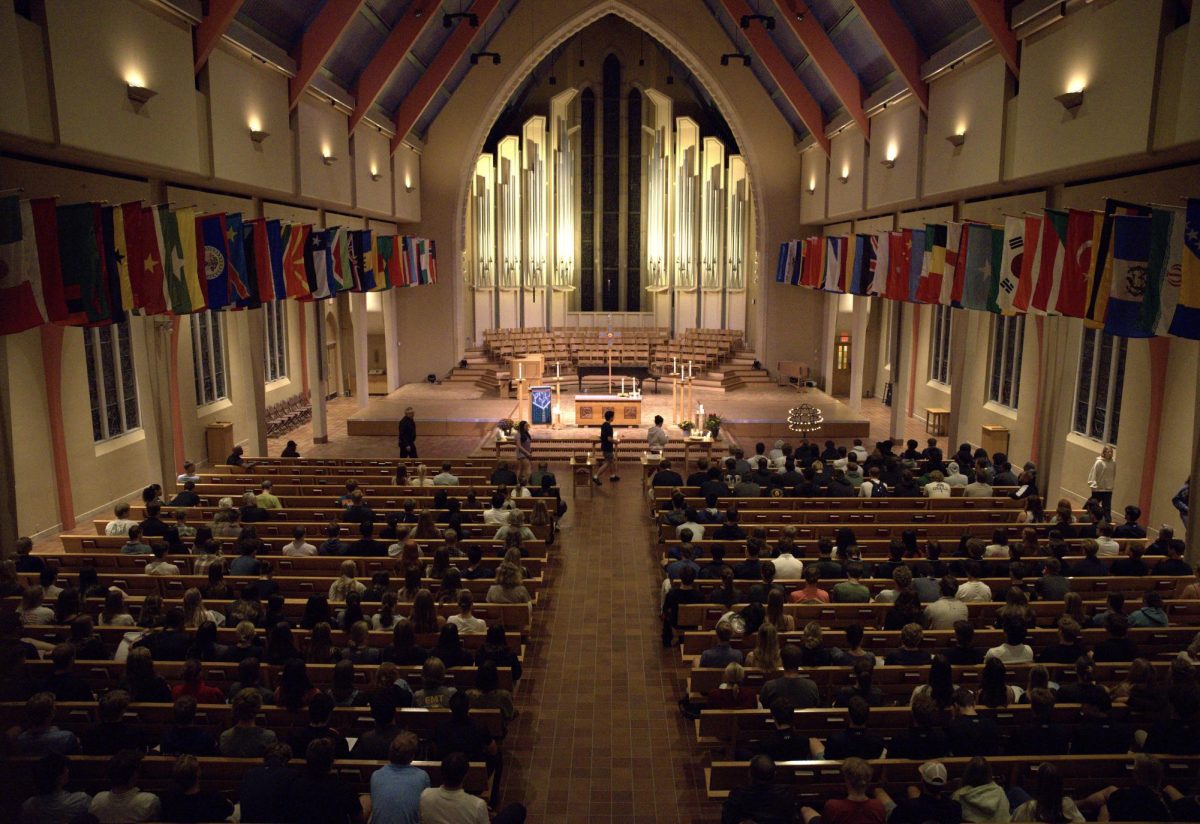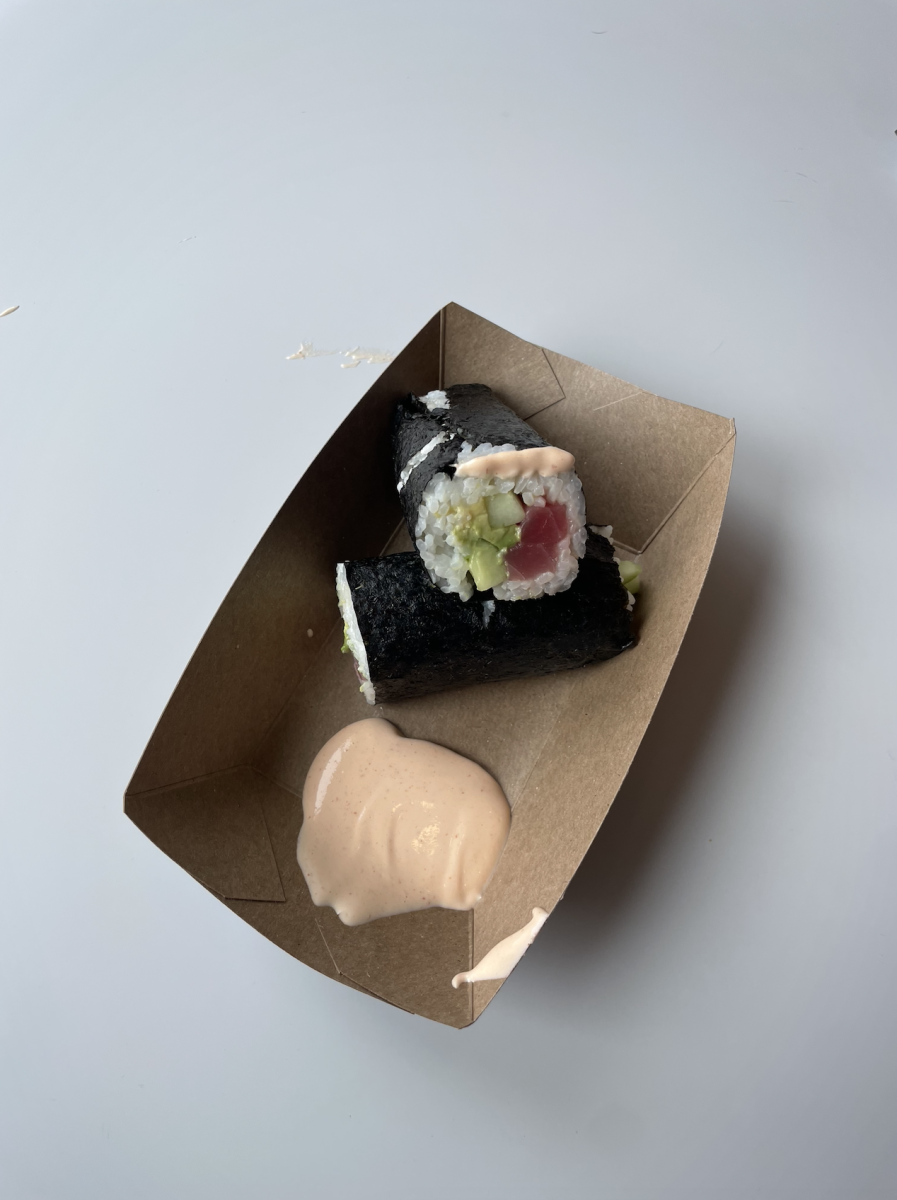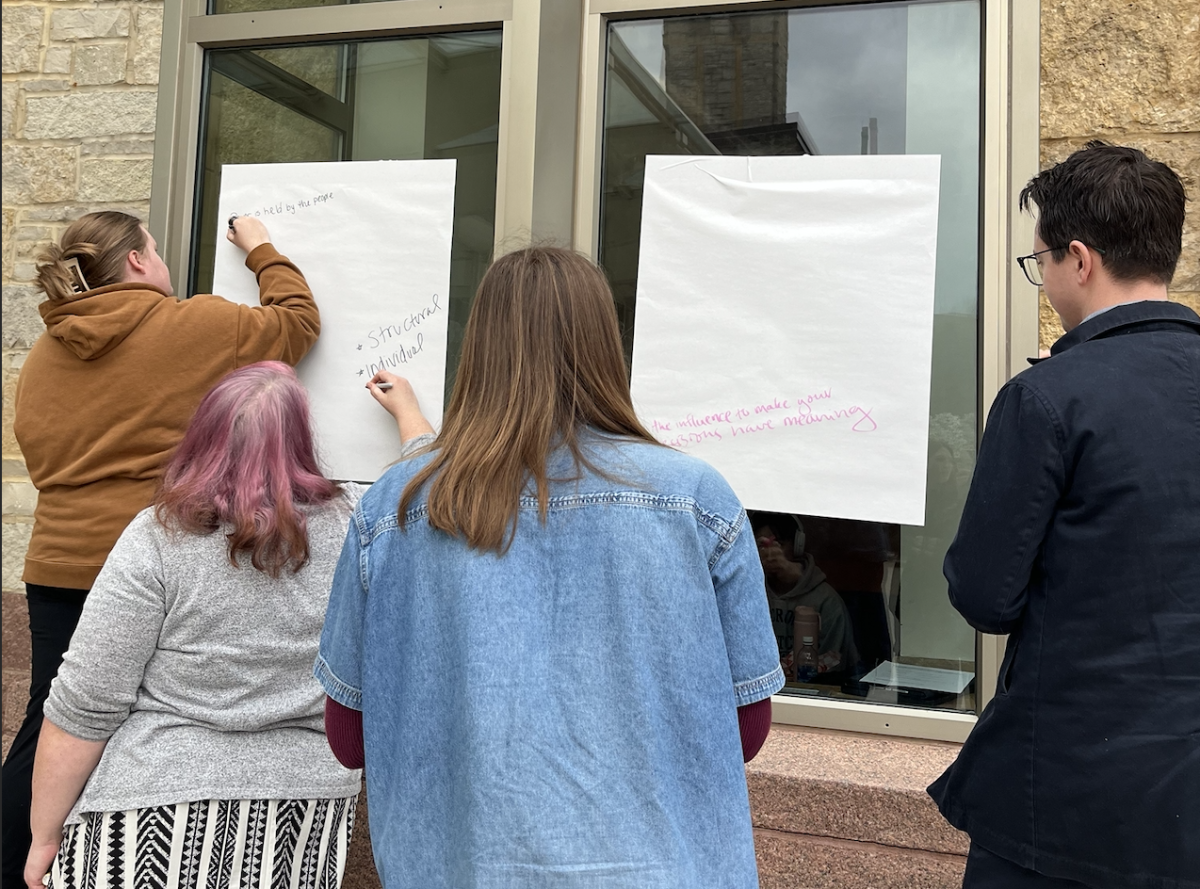The door to Assistant Professor of Psychology Jeremy Loebach’s office is decorated with colorful notes and signs saying “Congratulations!,” “Great job” and “Best news ever!” His colleagues appear very happy to hear the announcement of Loebach’s recent tenure appointment. They even threw him a party to celebrate.
Loebach has been teaching and doing research at St. Olaf since 2009. Much of his work centers around cognitive neuroscience and sensation and perception. His main interest currently lies in understanding how cochlear implant users learn to hear, and designing a training program to help them do so.
“From stimuli in the world, how do you agree on what reality is when your senses are different?” Loebach said.
He says St. Olaf is a particularly good place to study these topics, thanks to the many music students and a hearty interest in the senses.
Loebach collaborated with students and Devin Lackie, a technician in the physics department, to build a SoLoArc, a device that can help test sound localization vertically or horizontally. The sophisticated research device contains 37 individual speakers and 73 LED lights that are used to test how well subjects can determine the location of a sound’s source. He hopes to incorporate vision into the tests to see how the sensation of sound and sight can work together to influence perception of where a sound comes from.
“It would give us a glimpse into how we integrate space and time together,” Loebach said. “That’s been kind of a sub area I’ve been interested in ever since my post-doc, and the SoLoArc allows us to do that.”
In addition to his own research interests, Loebach’s work is often influenced by students and what they are interested in learning. He often uses their questions to guide experiments through a creative, thoughtful process. Students work through challenges with him, which provides learning opportunities on both sides.
“It’s a really great community,” Loebach said. “The people have been really fun here. They’re really earnest and eager to help, and that’s just something you don’t always get at other places.”
To Loebach, helping students explore their passions is his way of giving back. At Arizona State University, he got the chance to work with professors who encouraged him to pursue his research interests. Loebach started out as a business major, and described himself as a classic liberal arts student, taking even more classes than needed as he navigated from business to clinical psychology to neuroscience. He went on to earn his PhD in Biological Psychology from the University of Illinois at Urbana-Champaign.
“You don’t really know exactly what you want to do until you do it … you usually get to where you want to be in the end,” Loebach said.
Loebach taught briefly at Carleton College and Macalester College before coming to St. Olaf, where he has taught biopsychology, the psychology of hearing, sensation and perception, cognitive psychology and cognitive neuroscience. In the future, he hopes to teach in the Science Conversation, a relatively new interdisciplinary course that examines a holistic history of science and society. While he will be on sabbatical next year, he plans to focus on research and writing.
Loebach’s wife, Grace Cho, also teaches in the psychology department at St. Olaf, and the two of them have two young sons, Nicholas and Gabriel. Much of the professor’s free time is devoted to spending time with his family. He takes one day off teaching each week to spend at home with the baby, and he focuses on spending time with them as much as possible.
“The other great benefit here is all the things available for [the kids] to do,” Loebach said, “So they get to see things they may not get to see in other cases.”
When he’s not working or doing activities with his family, Loebach enjoys reading and watching science fiction. He rereads the Lord of the Rings series almost every year, and it remains his favorite series. Just like in his professional life, he knows a good thing when he has it and invests wholeheartedly in his project.
“It’s very rare for me to get into something brand new, because I’ll get fixated on something, and I’ll read it a couple times. And I’ll usually read the whole series and get kind of saturated in it. And then when I’m done, it’s like, okay, now what do I do?”
From his various interests to his focus on community, Loebach fits in well at St. Olaf, and the psychology department is excited that he’ll be around for a while.


